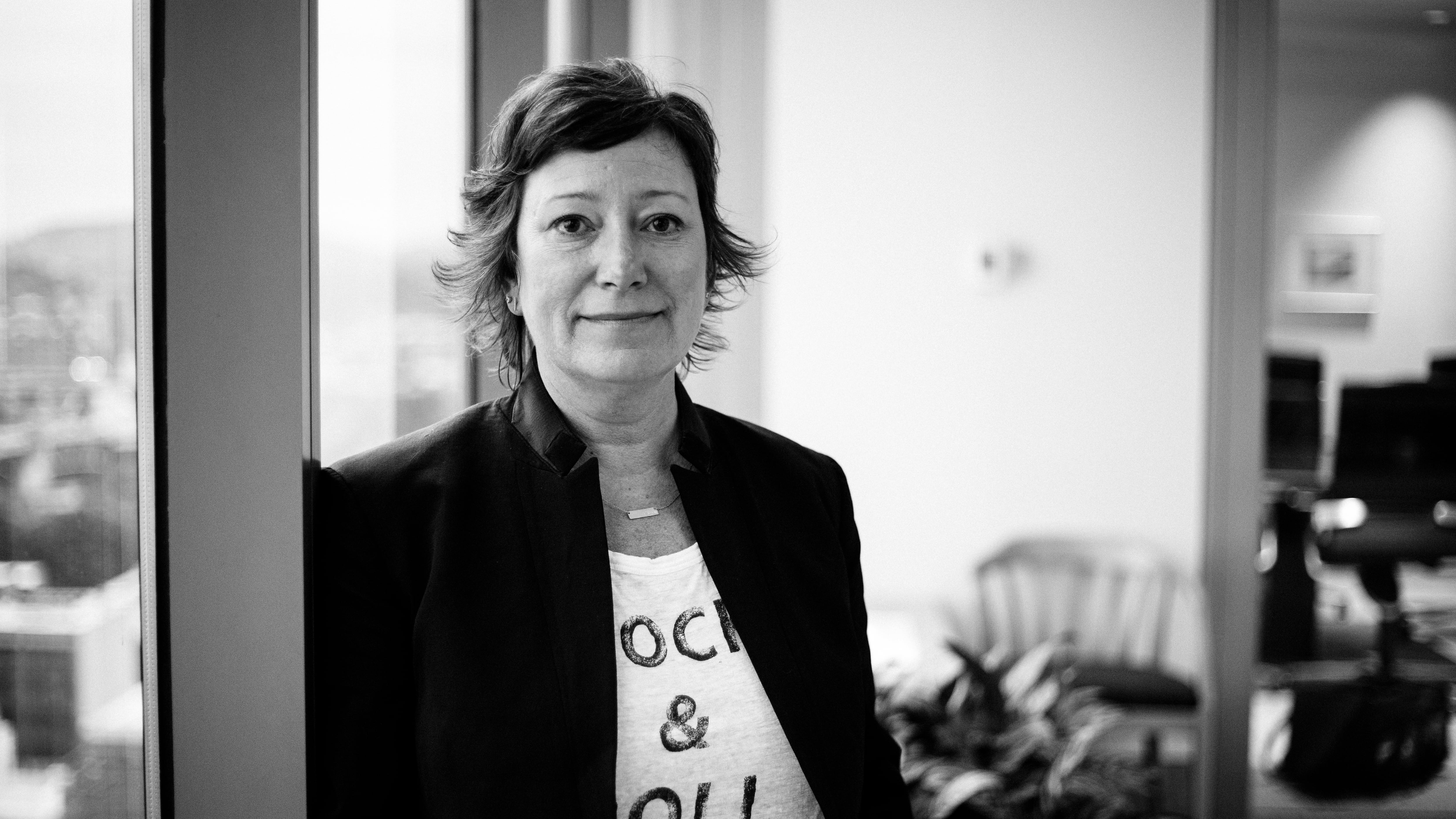Some couldn't bear to watch. Others couldn't look away. But for women across Portland, the U.S. Senate testimony of Dr. Christine Blasey Ford on Sept. 27 was a measurement of America.
The country flunked.
Ford appeared before the Senate Judiciary Committee to allege she had been sexually assaulted in high school by Brett Kavanaugh—who is now poised to join the U.S. Supreme Court. Hours later, Kavanaugh testified: weeping, peevish and dissembling about his teenage behavior. Republican senators then praised him, and voted to advance his nomination, with a one-week delay for an FBI investigation.
The spectacle was riveting and infuriating. The outcome is still in doubt. It will gauge how seriously the power brokers of this nation take violence against women. Over and over this week, we talked to Portland women who wanted to say why this moment mattered. They watched with their mothers, with their daughters. In the following pages, they tell us why Ford's testimony is something they will remember.

Carmen Rubio
Director, Latino Network
"The fact that Kavanaugh continues to be in the running in the midst of allegations by three women is insulting enough. But when you add in the comments of those coming to his defense, the hypocrisy becomes unbearable. I've had to turn off the TV in anger many times."

Phyllis Oster
Director of international relations and cultural affairs under Portland Mayor Vera Katz
"It's called the Supreme Court for a reason, and we need to have people who care about the laws of this land. And I didn't get the impression he does. I think he lied. The whole scene, the hearings and the nomination and everything that has gone around it, is really in your face: Women in this country don't matter."

Naomi Hand
"I just felt this feeling of 'Wow, these guys can still get away with it, and feel completely fine with it, just because it can't be proven.' Who is ever going to admit they did this? Nobody is ever going to admit it. You can be so wronged and have no way to prove the truth. I felt hopeless. It was a freaking emotional day."

Rukaiyah Adams
Chief investment officer, Meyer Memorial Trust
"I was in high school when the Thomas-Hill hearings tormented the country. Although the treatment of Anita Hill was enraging, I couldn't imagine a path to change things. After the Kavanaugh-Ford hearing, I thought: 'OFFS…ladies, it's time to change the Senate!' And we will."

Jeana Edelman
Artist and owner of Hotlips Pizza and Soda
"I had trouble listening to the hearings. So I went to the march at the federal courthouse downtown. The thing that I noticed immediately was the warmth of the group and how everyone was smiling and laughing together. It didn't have any of the antagonism I was feeling for days and months and years.
"It was affirming to be with other women and to raise our voices. It was sickening to see men drive by and shake their heads. And I suppose I was relieved the whole world was watching."

Olivia Katbi Smith
Co-chair, Portland chapter of the Democratic Socialists of America
"I'll remember the way victims of sexual assault and abuse were forced to relive their trauma, forced to imagine themselves telling their stories under oath on the national stage, forced to watch pundits and politicians, even those who think they're on the right side of this, see this as a sport, as an exciting game for their team to win."

Shannon Romain
"I'm a nurse. A lot of my patients were watching it, so I'd go in their rooms and watch little bits of it here and there. My patients were upset too, and not just women."

Rosemary Colliver
General counsel, Laika
"This seriously can't be happening. This really cannot be happening. I can't believe [Sen. Chuck] Grassley, the vitriol, and just the behavior. Leading up to it, the whole discussion was Anita Hill and 1991, and 'OK, I think we really messed that up and maybe we're going to do it a little different this time.' And it's like, no, it may have actually been worse."

Chloe Eudaly
Portland city commissioner
"What stood out to me was how young and vulnerable Dr. Ford sounded. I think one of the strategies women have to employ is making themselves small and appearing non-threatening in order to not provoke anger. And if that were me, I would be really freaking angry. And this woman's older than me. She sounded almost like a very young woman."

Aidan Krainock
"I'll remember a lot of things. Feeling sick to my stomach because he lied so many times and everyone in that room knew it. How many stories I saw on Facebook and Twitter from friends and colleagues who have been raped or assaulted and were reliving their trauma along with Dr. Ford. How many stories I heard of mothers telling their daughters about their own experiences with sexual harassment."

Ana Del Rocío
State director of Color PAC Action and David Douglas School Board member
"A big part of the reason it was painful for me to watch the hearings and to experience the public outcry is knowing there have been documented instances of sexual assault of young women and girls in immigrant detention centers across the country, and the public has yet to come to their defense as strongly as they have come to Dr. Ford's defense."

Gretchen Cole
"I'll remember that on the day of the hearing I was harassed by a man as I crossed the street and was reminded, again, that we still have so much work to do to teach the next generation about respecting others."

Christel Allen
Political director, NARAL Pro-Choice Oregon
"I think [women are] helping each other, we're supporting each other. But at the end of the day, the only way to prevent sexual assaults and rapes is to actually stop raping people and stop sexually assaulting people. Survivors can only do so much. We've told our stories."


